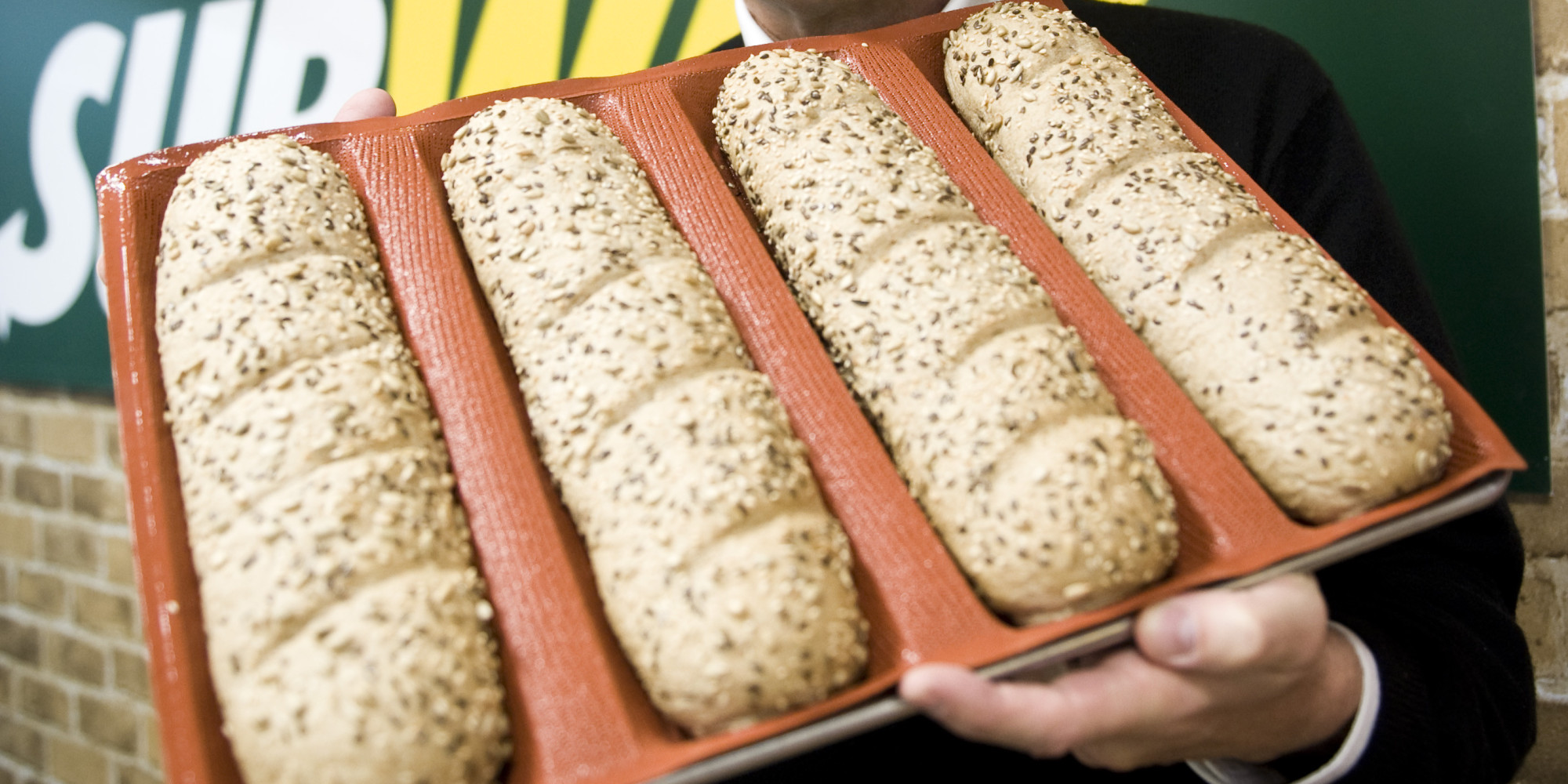Subway to Remove Chemical Found in Shoe Soles and Yoga Mats From Its Bread
Subway recently announced plans to phase it out the additive azodicarbonamide from it’s breads. The compound is used by the commercial baking industry to bleach flour and condition dough, but it not a necessary ingredient. It has been phased out in many other countries, and the World Health  Organization has linked it to asthma in people. Azodicarbonamide is also used in the manufacturing of yoga mats and shoe rubber.? While the FDA says there is “a reasonable certainty of no harm” when an additive is used “within the intended conditions of use,” a 1999 report published by the?World Health Organization says the chemical can impact breathing and skin sensitivity after repeated exposure.? Since breads can be produced without additives, such as azodicarbonamide, it has no purpose residing in our food supply. Subway’s decision to remove this additive is further proof of the fact that consumers can ultimately generate change within the food system.
Organization has linked it to asthma in people. Azodicarbonamide is also used in the manufacturing of yoga mats and shoe rubber.? While the FDA says there is “a reasonable certainty of no harm” when an additive is used “within the intended conditions of use,” a 1999 report published by the?World Health Organization says the chemical can impact breathing and skin sensitivity after repeated exposure.? Since breads can be produced without additives, such as azodicarbonamide, it has no purpose residing in our food supply. Subway’s decision to remove this additive is further proof of the fact that consumers can ultimately generate change within the food system.
CVS Vows to Quit Selling Tobacco Products
CVS Caremark, the country?s largest drugstore chain in overall sales, announced last week that it will stop selling cigarettes and other tobacco products by October . The company?s decision is another example of CVS’s attempt to become more of a health care provider than a largely retail business, with its stores offering more mini clinics and health advice to aid customers visiting its pharmacies. The company estimated that its decision would shave an estimated $2 billion in sales from customers buying cigarettes and other products. That is a mere dent in its overall sales of $123 billion in 2012, the latest figures available. More pharmacy’s should follow in CVS’s footsteps and eliminate deadly tobacco products.
?New Campaign Debunks Misleading ?Natural? Labels
A public education campaign was launched this week to highlight the benefits of organic food and to help consumers understand the difference between products labeled organic and those that are labeled as ?natural.? Natural labels have been added to everything from processed snacks to cooking oils made from GMOs to ice cream made from cows injected with growth hormones. The public education campaign will include videos to?help consumers understand the how the ?natural? label can be used to confuse shoppers. While the U.S. Food and Drug Administration (FDA) and USDA discourage companies from including ?natural? claims on processed foods containing synthetic or artificial ingredients, there is no official definition of ?natural? and little enforcement of misleading claims. The “natural” label carries little to no meaning, as oppposed to the organic label which assures that you, as a consumer, are avoiding a product containing GMO ingredients.

Comments are closed.